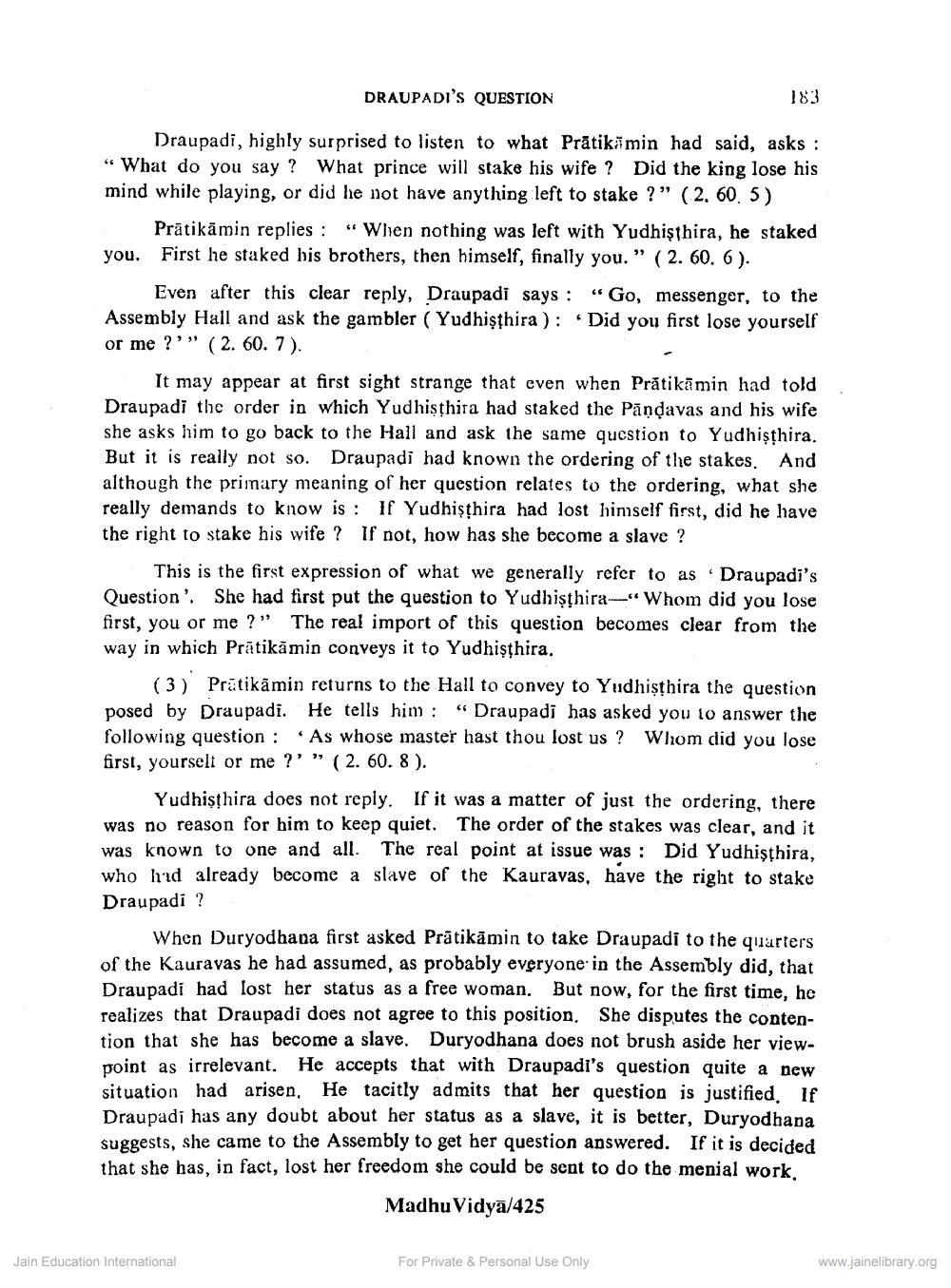________________
DRAUPADI'S QUESTION
183
Draupadi, highly surprised to listen to what Prātikä min had said, asks : “ What do you say? What prince will stake his wife? Did the king lose his mind while playing, or did he not have anything left to stake?” (2. 60.5)
Prātikāmin replies: “ Wien nothing was left with Yudhişthira, he staked you. First he staked his brothers, then himself, finally you." (2. 60. 6).
Even after this clear reply, Draupadi says : “Go, messenger, to the Assembly Hall and ask the gambler ( Yudhişthira): Did you first lose yourself or me?'” (2. 60. 7).
It may appear at first sight strange that even when Prātikāmin had told Draupadi the order in which Yudhisthira had staked the Pāndavas and his wife she asks him to go back to the Hall and ask the same question to Yudhisthira. But it is really not so. Draupadi had known the ordering of the stakes. And although the primary meaning of her question relates to the ordering, what she really demands to know is : If Yudhisthira had lost himself first, did he have the right to stake his wife? If not, how has she become a slave ?
This is the first expression of what we generally refer to as Draupadi's Question'. She had first put the question to Yudhisthira—“Whom did you lose first, you or me?” The real import of this question becomes clear from the way in which Prätikāmin conveys it to Yudhisthira.
(3) Pratikāmin returns to the Hall to convey to Yudhisthira the question posed by Draupadi. He tells him: “Draupadi has asked you to answer the following question: "As whose master hast thou lost us? Whom did you lose first, yourselt or me?'" (2. 60. 8).
Yudhisthira does not reply. If it was a matter of just the ordering, there was no reason for him to keep quiet. The order of the stakes was clear, and it was known to one and all. The real point at issue was : Did Yudhisthira, who hrd already become a slave of the Kauravas, have the right to stake Draupadi ?
When Duryodhana first asked Prātikāmin to take Draupadi to the quarters of the Kauravas he had assumed, as probably everyone in the Assembly did, that Draupadi had lost her status as a free woman. But now, for the first time, he realizes that Draupadi does not agree to this position. She disputes the contention that she has become a slave. Duryodhana does not brush aside her viewpoint as irrelevant. He accepts that with Draupadi's question quite a new situation had arisen. He tacitly admits that her question is justified. If Draupadi has any doubt about her status as a slave, it is better, Duryodhana suggests, she came to the Assembly to get her question answered. If it is decided that she has, in fact, lost her freedom she could be sent to do the menial work.
Madhu Vidyā/425
Jain Education International
For Private & Personal Use Only
www.jainelibrary.org




